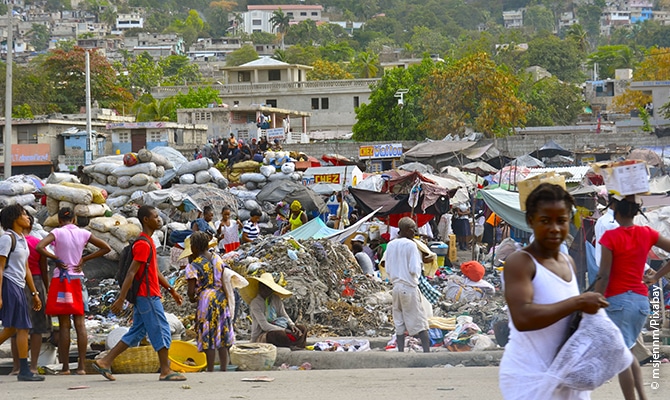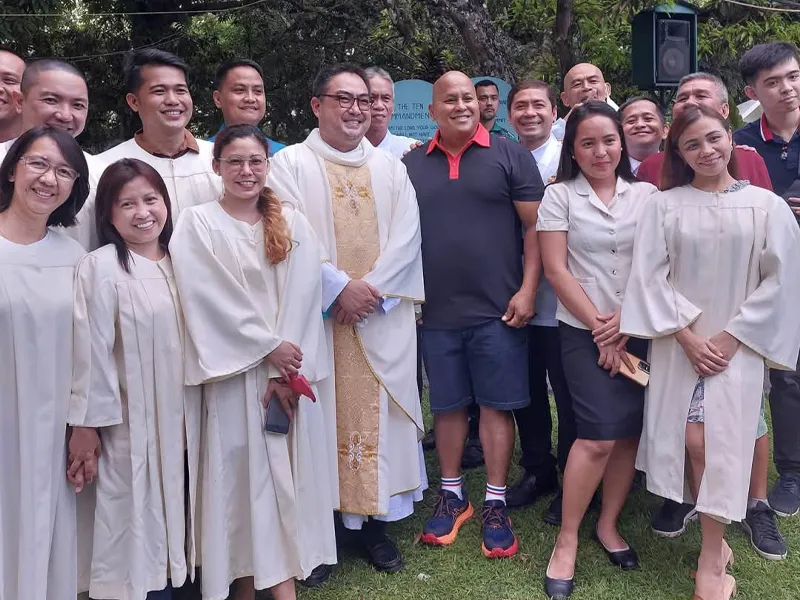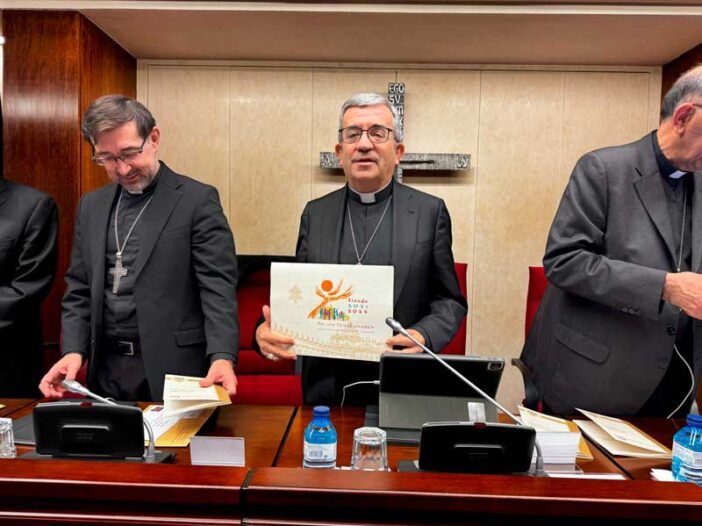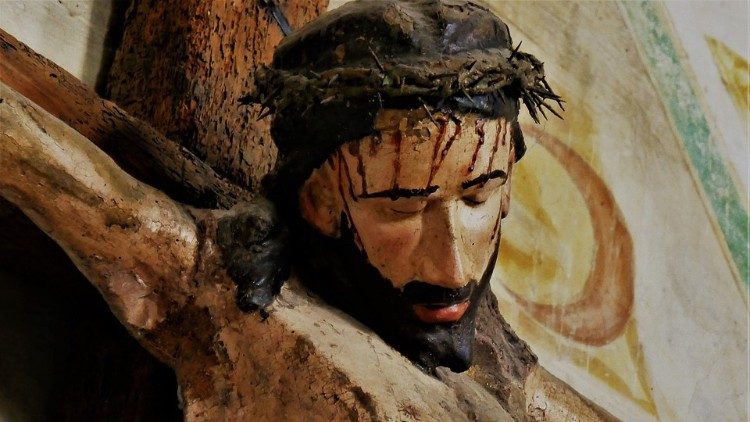Diocese in Mexico Faces Migrant Crisis
Aid Program Launched

The diocese of Tapachula, Mexico faces a migrant crisis and had launched an aid program for migrants who, it says, are suffering a “calvary”.
In recent weeks the Mexican town of Tapachula, on the border with Guatemala, has become a scene of chaos for thousands of migrants arriving there en route to the United States. These migrants, most recently being a majority Haitians, are fleeing the poverty, violence, and political crisis in their own countries.
Bishop Jaime Calderón, the Bishop of Tapachula, a diocese located on the southern coast of the state of Chiapas, recently issued a press release which was sent to the international Catholic pastoral charity and pontifical foundation Aid to the Church in Need (ACN International). He stated that since 2018 his diocese has witnessed the arrival of these migrants in his city, which is seen by them as “a meeting point for obtaining a safe transit document through Mexico” to the United States.
According to the bishop, “until now the borders have been open and the migrants have been treated with respect by the federal government.” Sadly, however, owing to the long and interminable wait by the migrants in his diocese and the crisis caused by the COVID-19 pandemic, the migrants “end up using up everything they have brought with them and find themselves on an agonising Calvary of hunger, overcrowding, drugs, ill-health and general despair” and they are becoming victims of a “veritable manhunt”.

One of the factors which has aggravated the situation is the arrival en masse of Haitian migrants, not only from their home country but also from other countries of Latin America to which they had previously emigrated, for example, Chile, Brazil, and Colombia, where the migrant and labor crisis has intensified greatly in recent months as a result of the pandemic.
Since the end of August and the beginning of September, owing to the terrible situation in Tapachula, some of the migrants have begun to move forward in large groups, or caravans, into the interior of the country. In his statement, the bishop denounced the actions of certain members of the Mexican National Guard, which he described as “a veritable manhunt, terrorizing, ambushing and breaking up the migrant caravans, with disproportionate use of force. Using excessive, indiscriminate, and unnecessary force, they have harassed and intimidated our migrant brothers and sisters, and particularly the women and children”, the statement declares.
At the same time, the Mexican bishop denounced the violence used by the forces of law and order in invading the church porch in the parish of the nearby town of Mapastepec to seize around fifty-six migrants who had taken refuge there.

In his communiqué, Bishop Calderón acknowledges that the diocese of Tapachula is aware that “behind these migrant caravans there is an infinite number of private interests, institutions, and non-governmental organizations that have made these migrants into an industry for their own personal benefit”. But he insists that “we will never agree with the excessive use of force, with the violence and harassment that are being used to intimidate and detain our migrant brethren.”
At the same time, the bishop indicated that the diocese has moved to offer help in the parishes, to alleviate the critical situation faced daily by the migrants in Tapachula – their “daily bread” – due to the massive number of migrants, the overcrowding, unemployment, hunger, drug addiction, health problems, and collective stress. By means of these aid programs, the Church is endeavoring to “lighten the weight of the cross borne by these brothers and sisters of ours who have been struck by poverty, violence, and helplessness.”
Faced with the magnitude of the crisis, the diocese feels overwhelmed, but Bishop Calderón is appealing for encouragement and prayers so that “our spirits will not be downcast in this effort, and we may be able to bring these brethren of ours a ray of light in this dark moment of history.”
Tapachula was in fact only the beginning of the terrible situation that has since spread to other parts of Mexico. On the Mexican – US border we have seen heartbreaking images of thousands of Haitian migrants being turned away and repatriated. Some of these have gone back to Mexico and are being cared for above all in the diocese of Monterey. During a visit to the CASA INDI (Institución Normativa de los Indigentes – a center to help vulnerable people in the diocese), where there are currently over 1500 Haitian refugees being sheltered, the Archbishop of Monterey, who is also president of the Mexican Bishops’ Conference, stated: “On behalf of our Church here in Monterey, I wish to welcome you here among us […] We hope that in the midst of the problems you are suffering on this northbound journey, this place may be an oasis for you.”
According to UN figures, out of some 11.5 million Haitians, around 4 million currently suffer food insecurity. Haiti, regarded as the poorest nation of Latin America, has endured a succession of natural disasters and political, economic, and healthcare crises. These were further exacerbated by the assassination of the Haitian President Jovenel Moïse, in July this year, which plunged the country into yet greater political instability, and finally by the earthquake in August this year which caused massive damage in three regions of the island.
Related

“The priest finds his reason for being in the Eucharist”
Fundación CARF
01 April, 2025
5 min

Family Valued: An international appeal for the family
Exaudi Staff
01 April, 2025
2 min

Bishop Luis Argüello Addresses the Challenges of the Church in Spain
Exaudi Staff
01 April, 2025
2 min

THE WAY OF THE CROSS: Accompanying Jesus on the way to the Cross
Luis Herrera Campo
31 March, 2025
5 min
 (EN)
(EN)
 (ES)
(ES)
 (IT)
(IT)

